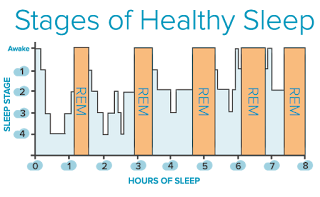After my email 2 weeks ago summarising some of my favorite presentations at the Perform Better Functional Training Summit, a lot of you expressed interest in the Sleep presentation.
Brandon Marcello started the presentation by listing the order of operations to high performance:
1. Sleep
2. Nutrition
3. Movement
4. Performance
5. Skill
He then stressed the importance of sleep and how fatigue, resulting from inadequate sleep, has a direct and measurable impact on reaction time, recovery, overall performance, and career longevity. Not having enough sleep leads to increased risk of injury and reduced pain threshold, greater susceptibility to sickness, reduced physical and psychological performance, reduced motivation, learning ability and memory, increase in anxiety, irritability and mistakes, increase in body fat percentage, reverting to old habits, and poor judgement of distance, speed, and and/or time.
Sleep facilitates an optimal level of waking function through alertness and ability to maintain focus and attention, cognitive performance (learning, memory, and creativity), mood, energy and motivation, control, coordination, and impulsiveness.
Having enough sleep every night allows us to reach deep sleep for a longer period of time. As you can see in the chart, we sleep much deeper after four hours of sleep than before. Having enough sleep improves motivation, recovery of muscle strength, sprint speeds, muscle glycogen, cortisol (stress) regulation, motor skill development, and memory consolidation.
Sleep Debt
Sleep Debt occurs when we don't have enough sleep. For example, if you need 8 hours and only slept 7 hours, you have 1 hour of sleep debt and need 9 hours of sleep the following night to "repay" that debt. Drowsiness after lunch is a red alert that you have sleep debt. You can also monitor your drowsiness after lunch to determine exactly how much sleep you need. You'll no longer feel drowsy if you have slept your needed hours of sleep a night.
Sleep Studies
A number of studies have shown increases in performance for students and athletes after increasing sleeping time. For example, after extending time in bed to 10hrs/night for several weeks, collegiate basketball players showed a 9% improvement in free throw shooting accuracy and a 9.2% improvement in 3 pt field goal shooting accuracy. Grade point averages improved 11% when cadets' sleep opportunity was expanded to from 6hr/night to 8hr/night. Another study showed that 24 year old healthy men who slept less than 5hrs/night for a week registered a 15% drop in testosterone. Yet another study found that there was an increase in your chances of catching a cold when you're not sleeping enough: When sleeping more than 7 hours, chances of catching a cold were 17.2%. When sleeping 5-6 hours, chances of catching a cold were 30%.
Sleep and the Brain
During sleep, the brain "bathes" itself in cerebrospinal fluid to get rid of waste products. The brain will also clean out toxic proteins, which can impair healthy aging of the brain, and cause brain-related diseases, such as Alzheimer's and other neurological disorders.
Sleep/Nutrition Interaction
Your sleep can influence what you eat and vice versa. Sleep deprivation alters the ability of the body to metabolize and store carbohydrates for recovery, as well as use them later. Individuals who are sleep deprived tend to crave carbohydrates.
Sleep Strategies
It is important to maintain the bedroom for sleep only. Be wary of "screen-time" an hour before going to bed, especially in the bedroom. Alertness is enhanced because the blight light emitted suppresses melatonin levels and also because the content presented is engaging and exciting. It helps to establish a bedtime routine. Here are some strategies: turn off all screens, take a hot shower, listen to relaxing music, stretch, lay out clothes for the next day, go to bed by 10:30pm, or read a relaxing book for 30-45 mins. A quiet and comfortable sleep environment is a dark room with temperature around 67F, unwanted sounds masked with a fan or other white-noise, and using ear plugs and sleep masks, if needed. Keep your biological clock in mind when you're planning your sleep:
Sleep Supplementation
There are many products on the market to help us sleep. It is generally not recommended to use any of these regularly, but they can help with sleep when used sporadically. Calcium, magnesium and zinc is one such mixture. Calcium helps the brain use the amino acid tryptophan to manufacture the sleep-inducing substance melatonin. Melatonin can also be taken directly. However, since melatonin is a hormone, taking it regularly will down-regulate our own bodies' production of melatonin.
It seems the proof is there that sleep is an invaluable part of our health. I have been prioritizing my own sleep recently by modifying my work and exercise schedule to allow me enough time to wind down at the end of the day. Having enough sleep is difficult for me and something that I continue to put effort into. What sleep strategies have you found work for you?
Thursday, September 13, 2018
Subscribe to:
Comments (Atom)





